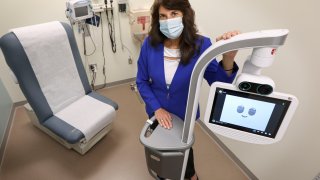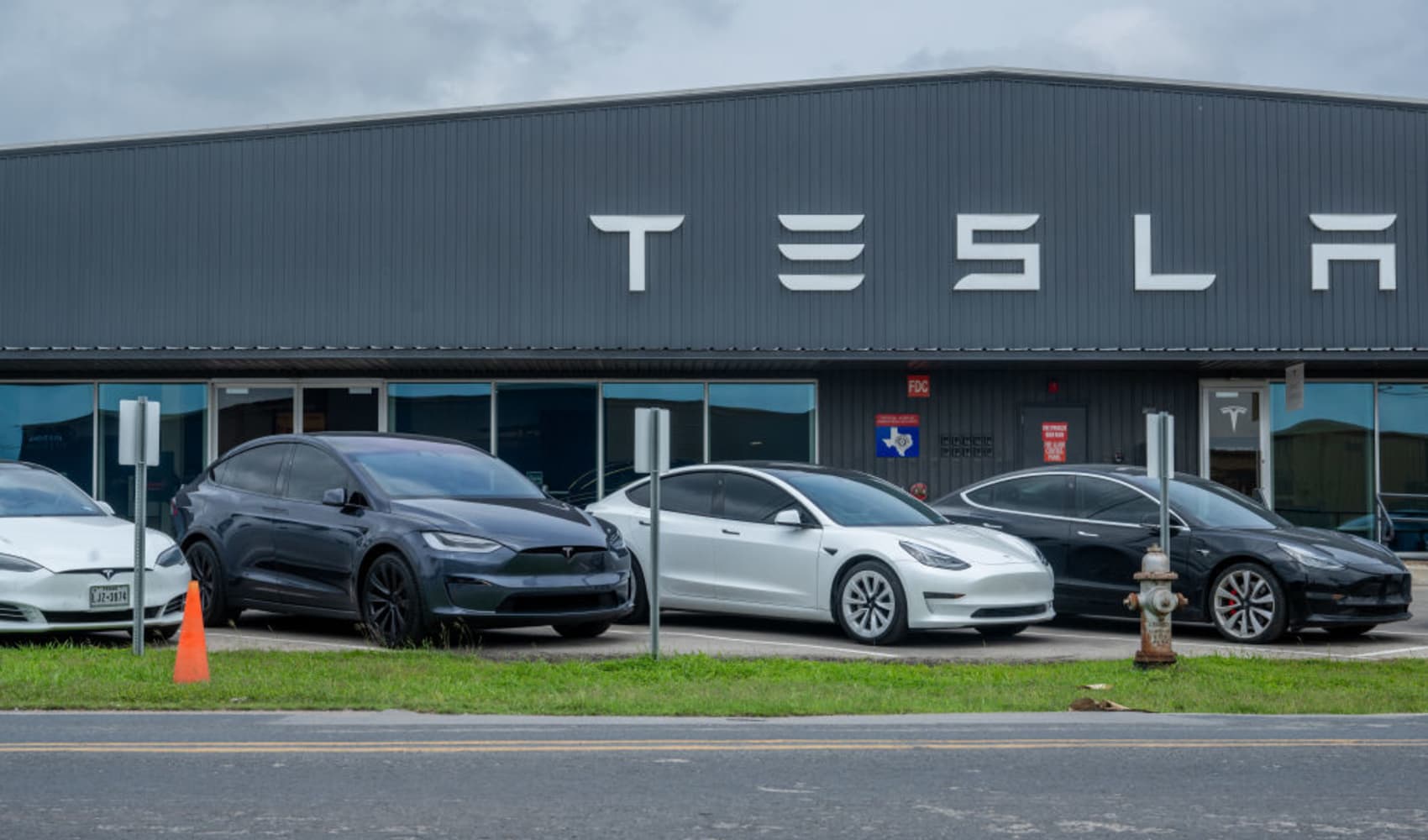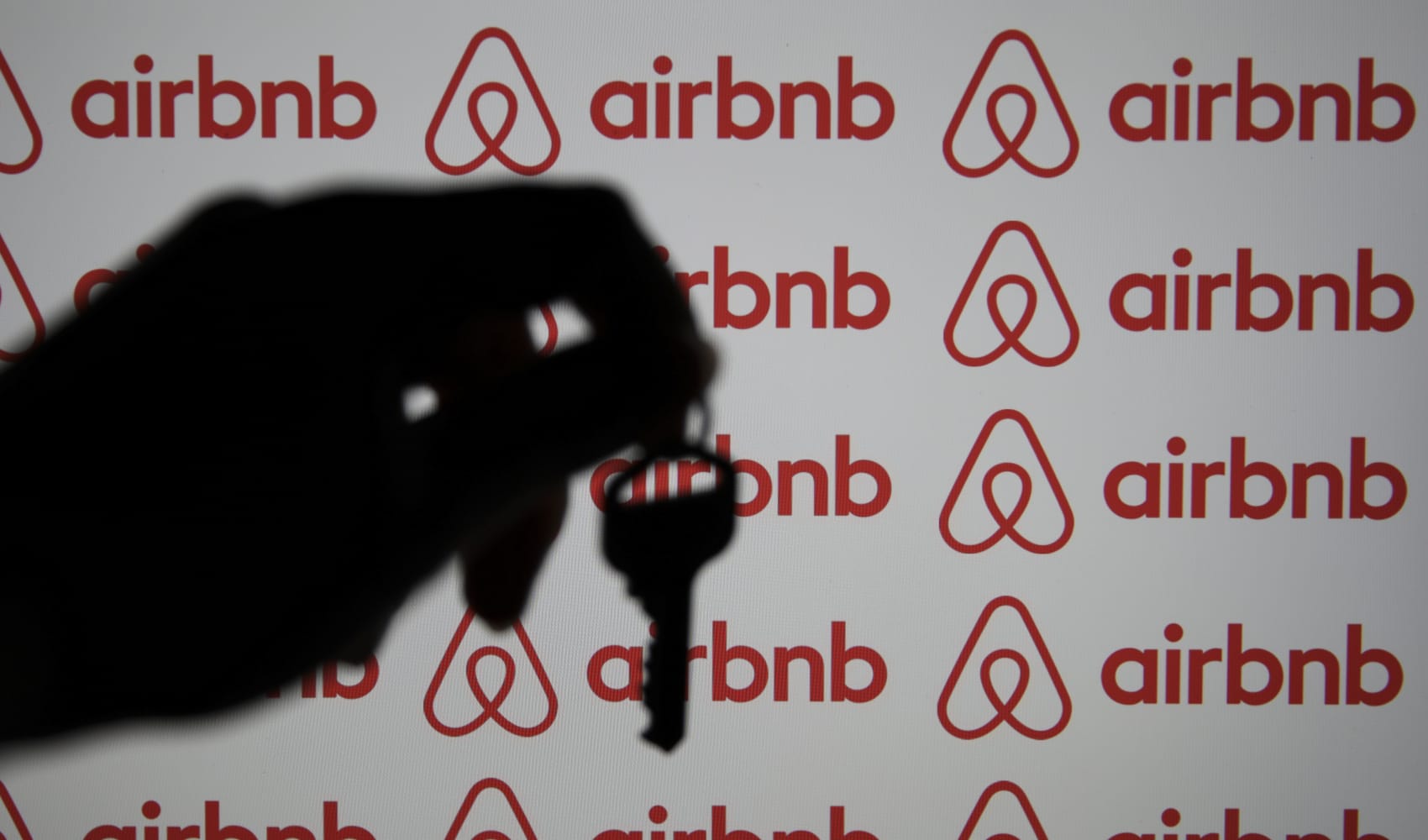
- Across earnings this week, write-downs of formerly high-flying stocks were present, notably in the cases of Amazon and Ford devaluing stakes in electric vehicle maker Rivian.
- Tech giants Google and Microsoft also cited some equity bets that lost value.
- But Teladoc, the telehealth leader which boomed during the pandemic and completed the largest digital health deal ever, an $18 billion acquisition of chronic care company Livongo, devalued that business by $6 billion, more than Teladoc's current market cap.
This week's earnings details have included some big-name reckonings with the value of high-growth, high-tech — and high-risk — companies. Ford and Amazon writing down stakes in electric vehicle maker Rivian; Alphabet and Microsoft noting some equity bets that declined in value. But the valuation hit that was the biggest, and in it own microcosmic way, may speak loudest about the past decade of valuation gains in technology start-ups that has drawn comparison to the dotcom bubble, comes from the health-care sector.
Health care was a marquee trade of the pandemic market. This may seem obvious: a world reckoning with a global medical crisis bringing economies to a standstill should awaken to the need for more health-care investment. There were big winners whose business was directly tied to the risk of pandemic, and whose investors proved the value of their forethought: namely, Moderna Therapeutics. But at a broader stock market level, the digital health trade was in the category of stay-at-home stocks that booked huge gains, as telehealth boomed, with patients required to seek care virtually and as the adoption of digital services across sectors went through years of evolution in a period of months.
This theme is now looking tenuous, and business models these disruptors plan to use to turn pandemic plays into long-term health-care winners less certain. Much of technology has been pummeled since last fall, from enterprise cloud to biotech and fintech, but this week's disastrous earnings from telehealth leader Teladoc marked the lowest point for the health-care version of this recent tech bubble trade. After booking a more than $6 billion charge related to its acquisition of chronic care company Livongo, Teladoc shares cratered and are now down more than 80% from a year ago. Its 40% dive on Thursday brought into stark relief what's been a yearlong train wreck for the digital health public valuations: competitors AmWell and 1Life Healthcare down more than 80% in the past year, and consumer health care company Him and Hers Health down more than 60%.
Get Connecticut local news, weather forecasts and entertainment stories to your inbox. Sign up for NBC Connecticut newsletters.
Among AmWell's investors was Google, which put $100 million into the company in 2020.
The $6.6 billion impairment charge is excluded from earnings metrics, but it is a big hit that relates directly to how Teladoc planned to make its stay-at-home trade bridge to a post-pandemic business. Teladoc bought Livongo for $18.5 billion in cash and stock in late 2020 in the biggest digital health deal to date.
To put into perspective how bad the $6.6 billion impairment charge is: after Thursday's stock decline, it was larger than Teladoc's market cap.
Money Report
CNBC's Bob Pisani pointed to an ominous market parallel: AOL-Time Warner. Within a year of that deal, the combined company's biggest headlines weren't about synergies but about "goodwill impairments" as the value of the original dotcom bubble deal milestone, AOL, plummeted.
The AOL-Time Warner write-downs were multiple magnitudes the size of Teladoc (before and after its crash). But the collateral damage from the Teladoc disaster reaches across the recent disruptive investment era and one of its star stock pickers: ARK Invest's Cathie Wood, who was among the only funds that invested in the "falling knife" of Teladoc earlier this year, and had grown to be its largest shareholder. It was the third largest holding in her biggest fund after Tesla and another stay-at-home play: Zoom Video Communications.
Wood's fund is undeterred, buying more Teladoc on Thursday, and the stock had a bit of a bounce on Friday morning even as other tech stocks continued to sell off. But in a sign of just how much has come off the disruptive trading theme, her flagship ARK Innovation Fund has now suffered a fate familiar to the vast majority of investment management peers, even those that get off to a hot start: it is no longer ahead of the S&P 500 in performance since its inception. For any investor who lived through the dotcom bubble and is old enough, or had parents old enough, to be sold on the need to branch out from core equity into sector fund bets on health sciences, telecom and tech funds, the lessons should have been learned long ago.
The big issue for Teladoc isn't merely whether it and Livongo and others are merely in for a period of reset valuations before moving higher again, but whether cracks in the foundation of its business model have been exposed as the pandemic euphoria erodes. Wall Street, which bailed on the stock on Thursday morning, is concerned, with one analyst writing about the "cracks in TDOC's whole health foundation as increased competitive intensity is weighing on growth and margins."
And Wall Street notes those cracks are occurring in just the areas where Teladoc was planning to grow beyond the commoditized core telehealth service, into direct-to-consumer mental health and Livongo's chronic care space, expected growth drivers for the next three years.
"While we are reticent to make sweeping changes to our thesis based off of one poor quarter, we are doubtful that we will see the competition-driven headwinds abate anytime soon," one analyst who downgraded the stock wrote.
A focus by employers on wellness was viewed as a tailwind for this sector, but there are now growing doubts about just how much corporate buyers will pay for these services. Sales cycles are getting pushed out and employers paying very high wages and dealing with workforce shortages are reassessing their expenses. "HR departments are getting squeezed because there's so much going on with respect to return to office, dealing with the Great Resignation and all of the hiring and allocating resources to talent acquisition and retention," Teladoc CEO CEO Jason Gorevic said.
The write-downs in Rivian stakes this week speak to what seemed logical enough in bubble talk after investors piled into the EV stock. Valuation gains often reflect one element of what makes a bubble: an imbalance between the supply of a particular investment desire and demand, and market bubbles form when too much money is put to work in a particular area that is short on supply. Rivian was one of the only public market options to bet on EVs other than Tesla.
But in digital health-care, it's the players and not just the trade that has gotten crowded, a point Teladoc alluded to in its earnings. "We're seeing clients inundated with a number of new smaller point solutions, which has created noise in the marketplace," Gorevic said.
This is why companies like Teladoc had been actively seeking to scale up, and across services, in M&A like the Livongo deal. Castlight Health merged with Vera Whole Health. Virgin Pulse tied up with Welltok. Accolade bought PlushCare. Grand Rounds and Doctors on Demand merged. They also face the monster threat of Amazon, which this year began rolling out its health service to corporate plans nationally. Highly valued digital health companies tying up may have led to valuations getting well ahead of the proof the deals will work in a market being pressured on all sides.
The most recent comparison isn't the dotcom bubble. The Nasdaq is having its worst month since the March 2020 pandemic crash. Amazon took its biggest fall in eight years on Friday.
"The current market performance is threatening to make a transition from a longish and painful 'correction' to something more troubling," according to a note from Marketfield Asset Management Chairman Michael Shaoul cited by CNBC. "What tends to be more important than price declines, is the length of time that it takes to repair a deep drawdown."
Amazon falling more than 10% on Friday is nothing in the bigger picture of the trillion-dollar company it has become. But in an earlier era, it took Amazon a full decade to recover in share price after the dotcom bubble burst.
It could just be the pandemic trade bubble bottom being reached, or something deeper — with the Nasdaq on pace for its worst month not only since March 2020 but since 2008, and worst start to a year ever, worse than 2001 and 2002, according to Bespoke.
In a CNBC interview on Friday afternoon, Cathie Wood compared Teladoc to Amazon directly, saying they are in the "same league" and arguing that investors are missing out.
Gorevic told Wall Street analysts that he is convinced that Teladoc's "whole-person" strategy is the right one, and it may just take longer to see the pipeline turn into sales, and more deals may come through insurance partners rather than direct corporate buys. Teladoc is, no doubt, a leader in its market.
But Teladoc's CEO also conceded, "it's still sort of on the verge of being finished with the integration, we don't have the proof points behind it. So people are waiting and anxious to see and the early adopters are buying, but we haven't yet hit the bulk of the market."
Or in other words, the test results are not back in from the lab yet. Investors, unlike patients, don't need to wait.
—CNBC's Ari Levy contributed to this report.






